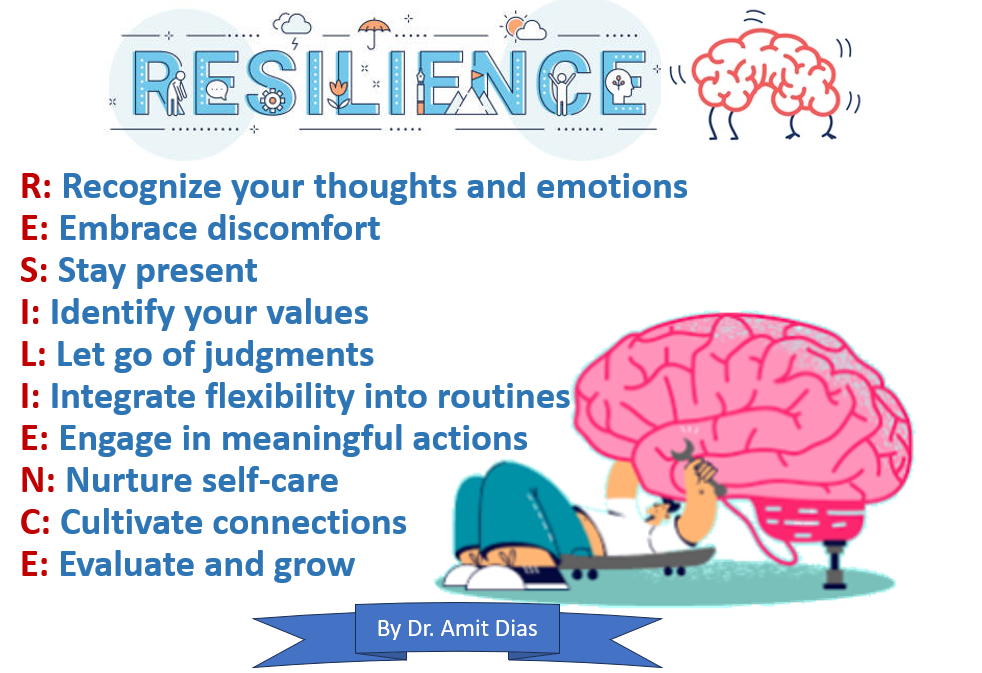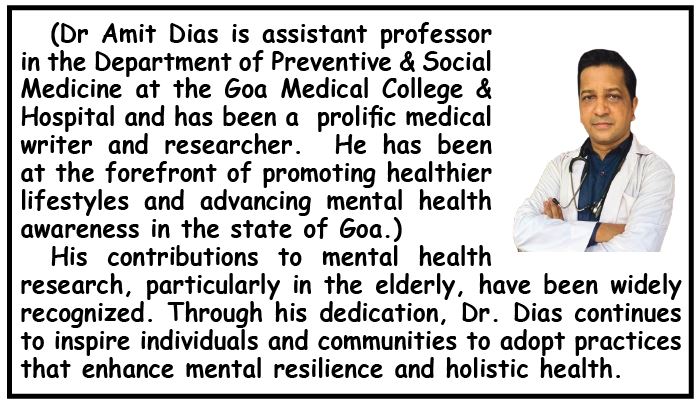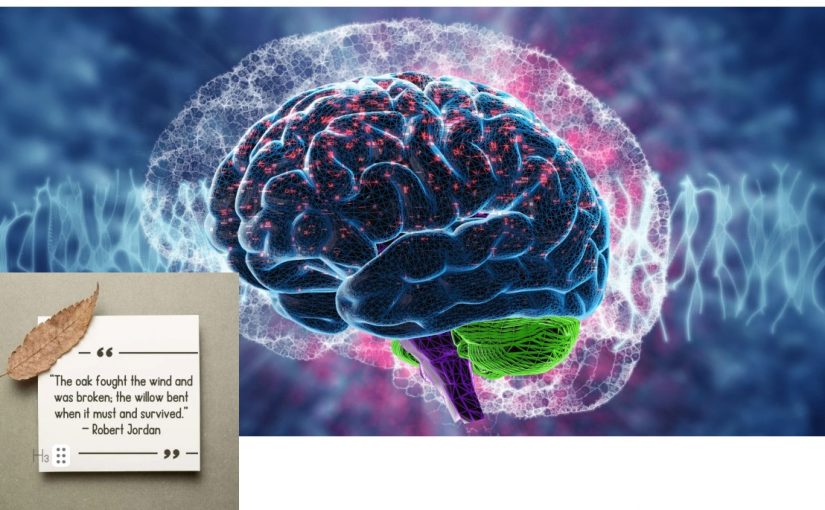This month we observe Mental Wellness Awareness Month. We explore the idea of “psychological flexibility” with Dr Amit Dias. He says “Life comes with twists and turns. To thrive, we need to embrace the challenges with psychological flexibility — bend, don’t break.”
In this conversation he reveals the science behind psychological flexibility, explains its importance for people of all ages, and offers practical techniques to cultivate this invaluable skill. Join us as we explore how to build resilience, foster adaptability & promote mental wellness.
An interview with Dr. Amit Dias as part of the Mental Wellness Month
Q: Dr. Dias, what is the significance of observing ‘Mental Wellness Month’ in January ? and what aspect would you like to focus on during this month?
Dr Amit Dias: Mental Wellness Awareness Month is observed in January every year to encourage individuals to begin the new year with a proactive focus on mental health. It aligns with the spirit of fresh starts and resolutions, reminding us to prioritize our emotional and psychological well-being alongside physical health goals.
January is particularly relevant because it often brings challenges such as post-holiday blues, stress from financial or social pressures, and shorter days that may intensify conditions like seasonal disorders. Observing this month provides an opportunity to raise awareness about mental health, reduce stigma and share effective coping strategies.
While we already have World Mental Health Day on October 10, dedicating January to mental wellness emphasizes the need for continuous attention throughout the year. This year, I want to focus on raising awareness about psychological flexibility—a vital skill that empowers people to navigate life’s uncertainties, manage stress and improve overall mental health. Life comes with twists and turns, to thrive we need to embrace the challenges with psychological flexibility. The mantra is Bend, Don’t Break!
Q: That’s interesting, what exactly is psychological flexibility? And how is it relevant in today’s world?
A: Psychological flexibility is the ability to adapt to changing circumstances, balance conflicting demands, and maintain perspective while staying true to one’s values. One needs to accept other methods for problem solving if the one in your mind does not work. When one door closes, others open. We saw it work beautifully in our DIL Initiative for seniors. DIL was a program to prevent depression in late life, conducted in collaboration with the University of Pittsburgh under the leadership of Prof Charles Reynolds. We trained seniors in Goa with the help of Problem Solving Therapy to find solution to their own problems and we managed to demonstrate a significant drop in the incidence of depression in the elderly in just a year’s time. It’s not rocket science, it’s a matter of activating our skills to adapt. Sometimes it needs a catalyst to make it happen.
Today, this skill is more relevant than ever. The World Health Organization (WHO) reports that global stress levels have increased significantly, with anxiety and depression affecting over 280 million people worldwide. Psychological flexibility helps individuals manage stress, adapt to rapid changes, and maintain well-being in an unpredictable environment.
Q: What age groups benefit the most from psychological flexibility, and how?
A: Psychological flexibility benefits people across all age groups, though its impact varies:
• Adolescents: It helps them navigate academic stress, social pressures and identity formation. For instance, a teenager who learns to manage exam anxiety by focusing on preparation, performs better. We frequently hear about unfortunate suicides in adolescents, this is a wake-up call for all of us to train them to be resilient with skills in psychological flexibility.
• Workplace Professionals: Flexible thinking enhances teamwork and problem-solving. A manager adapting to remote work can inspire their team to innovate and remain productive. One must also be able to deal with workplace bullying and harassment. Changes are needed at the policy level.
• Elderly: It helps them cope with physical decline, bereavement, or social isolation. In our experience we have seen, an elderly person embracing video calls to connect with family can significantly reduce loneliness. Our Memory Cafe in Goa, is a successful platform to help elders connect with like minded creative elders and support each others well-being.
Q: How is psychological flexibility linked to resilience?
A: Resilience is the capacity to recover from adversity, while psychological flexibility is the mechanism that enables it. Resilient individuals accept challenges, adapt strategies, and grow through difficult experiences.
For instance, a person recovering from job loss might initially feel defeated. With psychological flexibility, they can acknowledge the loss, reassess their skills, and pursue opportunities aligned with their values, fostering resilience.
Studies show that resilient individuals are 60% more likely to maintain mental health during prolonged stress compared to those who lack flexibility.
Q: Why is psychological flexibility essential in the workplace? Could you provide more examples?
A: In dynamic work environments, flexibility fosters adaptability, creativity, and collaboration. For instance, during a corporate merger, employees often face role changes and uncertainty. A psychologically flexible employee might acknowledge their fears but focus on learning new skills and building relationships, thereby thriving in the new environment.
The WHO identifies workplace stress as a major health challenge, costing the global economy approximately $1 trillion annually in lost productivity. Psychological flexibility reduces burnout and improves decision-making, ultimately benefiting individuals and organizations.
Q: How can psychological flexibility benefit the elderly specifically?
A: Our work with the elderly in Goa has provided the evidence for this. Older adults are known to be rigid and feel hopeless and helpless if things do not go their way. They need to be flexible and learn to take other paths to reach the same destination and achieve their goal rather than abandon it. Psychological flexibility supports mental health by reducing feelings of helplessness and enhancing their ability to find meaning in later life. For example, an elderly individual with reduced mobility might feel disheartened. By accepting their limitations and exploring new hobbies like painting or gardening, they can maintain a sense of purpose. We had several such examples in our DIL project where in elders were trained for behavior activation and taking steps to take care of their own health. The findings of the study were published in the JAMA.
Psychological flexibility improves coping with chronic conditions. According to the WHO, 80% of older adults have at least one chronic disease. We faced the same problem in our participants, many of them had diabetes, hypertension, visual impairment and were looking for ways to deal with it. Flexible individuals manage these conditions better by focusing on what they can control, like diet, exercise, and medical adherence.

Q: Could you simplify for our readers a brief guide on how to achieve psychological flexibility?
A: Of course. Here’s a simple process to achieve it — remember the word RESILIENCE.
R – Recognize your thoughts and emotions
Acknowledge your internal experiences without judgment. Understanding your feelings is the first step toward managing them effectively.
E – Embrace discomfort
Accept that challenges and discomfort are part of growth. Avoidance only reinforces fear; facing difficulties builds resilience.
S – Stay present
Practice mindfulness to anchor yourself in the moment. Avoid dwelling on the past or worrying excessively about the future.
I – Identify your values
Clarify what matters most to you. Let your actions align with your core values, guiding decisions even in difficult situations.
L – Let go of judgments
Release self-critical or judgmental thoughts about yourself or others. Treat yourself with kindness and compassion.
I – Integrate flexibility into routines
Adapt to changes in your environment or expectations. Adjust plans as needed instead of rigidly clinging to them.
E – Engage in meaningful actions
Take small, purposeful steps toward your goals, even when it feels challenging. Action fosters a sense of progress and control.
N – Nurture self-care
Invest time in activities that rejuvenate your body and mind, such as regular exercise, healthy eating, and adequate rest.
C – Cultivate connections
Build and maintain supportive relationships. Social support is crucial for emotional resilience and adaptability.
E – Evaluate and grow
Reflect on your experiences and learn from setbacks. Treat failures as opportunities to adapt and improve.
Q: What is your final message to our readers?
A: In conclusion, I would like to remind you of the story of “the oak and the willow in a fierce storm.” The oak, rigid and unyielding, was uprooted by the wind, while the willow, with its flexibility, swayed and stood strong. This simple story beautifully illustrates the essence of psychological flexibility.
In life, we may face strong winds—challenges, uncertainties, and stress—but those who remain flexible, like the willow, can adapt, endure, and ultimately thrive. So, remember: Bend, don’t break!

